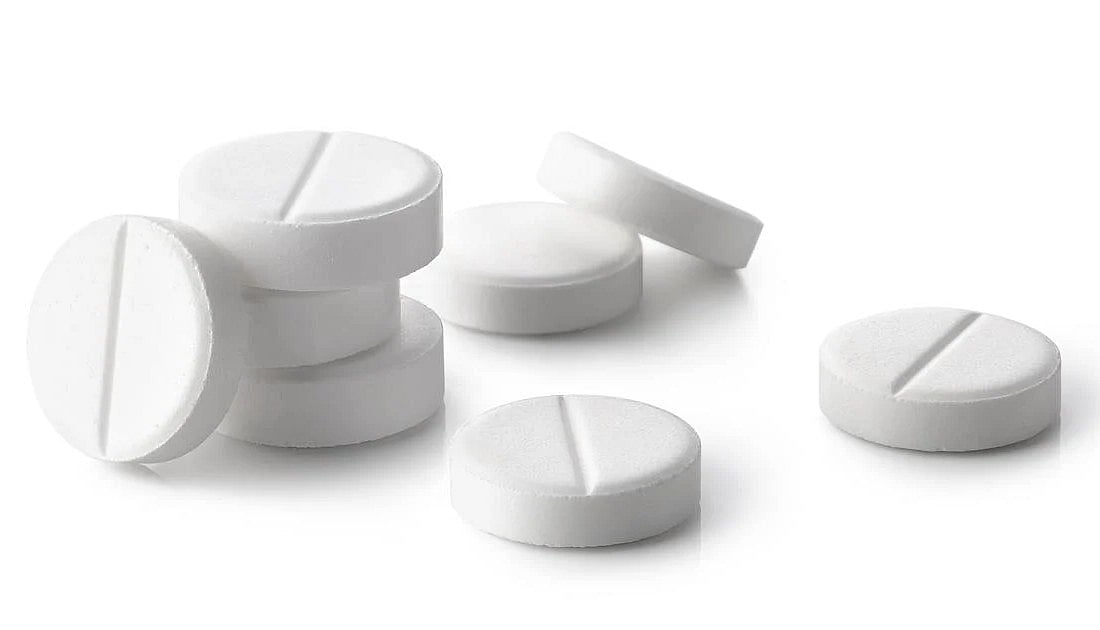Get Healthy!

- Posted November 4, 2025
Low-Dose Aspirin Might Benefit Adults With Type 2 Diabetes, Study Says
Low-dose aspirin is no longer universally recommended to prevent heart health emergencies, but it might help people with type 2 diabetes, a new study says.
People with type 2 diabetes who took low-dose aspirin were less likely to have a heart attack or stroke, according to findings that will be presented Nov. 9 at the upcoming annual meeting of the American Heart Association in New Orleans.
“We were somewhat surprised by the magnitude of the findings,” researcher Dr. Aleesha Kainat, a clinical assistant professor of medicine at the University of Pittsburgh Medical Center, said in a news release.
“People with type 2 diabetes and a higher risk of cardiovascular disease who reported taking low-dose aspirin were much less likely to have had a heart attack, stroke or death over 10 years when compared to similar individuals who did not report taking low-dose aspirin,” Kainat said.
“That benefit was greatest for those who took aspirin consistently, throughout most of the follow-up time," she added.
For decades, experts had recommended that people take low dose aspirin to lower their risk of a first heart attack and stroke.
But in 2022, the U.S. Preventive Services Task Force revised its recommendations after deciding that aspirin’s heart health benefits barely outweighed the bleeding risk created by the drug’s blood thinning properties.
“We know that in recent studies aspirin hasn’t proven beneficial for primary prevention in people who don’t have established cardiovascular disease,” Kainat said. “However, type 2 diabetes is a known risk factor for cardiovascular disease.”
“In our study, we wanted to better understand low-dose aspirin use in this very niche group of adults with type 2 diabetes and with a moderate-to-high risk of cardiovascular disease — so, a population group who may or may not have been included in previous trials,” Kainat said.
For the study, researchers tracked health records for nearly 11,700 adults with type 2 diabetes and elevated heart risk who were registered with the University of Pittsburgh Medical Center’s health system.
The system includes more than 35 hospitals and 400 outpatient clinics in Pennsylvania, Maryland and West Virginia.
Results showed that adults with diabetes who took low-dose aspirin were less likely to have a heart attack (42% versus 61%) or a stroke (15% versus 25%) compared to those who didn’t.
Their overall rate of death was also lower, 33% among the aspirin group versus 51% among those not taking aspirin.
Any aspirin use reduced risk of heart attack or stroke, but the greatest benefit was found among those who took the drug more regularly, researchers found.
The benefits of aspirin didn’t hinge upon a person having their blood sugar under control, but risk reduction was more substantial with lower blood sugar levels, researchers said.
“It’s worth noting that our analysis excluded the records of people who had a high risk of bleeding, and we did not track bleeding events or other side effects in our study,” said Kainat. “That’s an important limitation because aspirin’s bleeding risk is crucial in real-life decision making and a person's independent bleeding risk has to be accounted for whenever we are prescribing a medication.”
Future research should investigate how to best weigh bleeding risk against heart benefits among diabetics, Kainat said.
“We’ll need to look at how we balance the cardiovascular benefits of low-dose aspirin with its known bleeding risks for individual high-risk individuals,” Kainat said.
“It is also an open area of inquiry to see how low-dose aspirin’s benefit might interact with the myriad emerging therapies for Type 2 diabetes and heart disease, such as GLP-1 medications and other lipid lowering agents besides statins, so we look forward to conducting more research on this important topic,” she went on to say.
Researchers noted that the study could not draw a direct cause-and-effect link between aspirin use and lower heart health risks, but only show a potential association.
The new findings are “very important because cardiovascular disease continues to be the leading cause of death among people with type 2 diabetes, and furthermore, type 2 diabetes is a leading risk factor contributing to a recent rise in heart disease and stroke,” AHA spokesperson Dr. Amit Khera, director of preventive cardiology at UT Southwestern Medical Center in Dallas, said in a news release.
“While the American Heart Association does not currently recommend low-dose aspirin for primary prevention of cardiovascular disease for adults with type 2 diabetes who have no history of cardiovascular disease, this study raises some good questions for further research and validation,” Khera said.
“The clear message is to always work directly with your health care team to identify your specific risk factors and conditions and together decide whether the benefits of any treatment outweigh the potential risks,” he added.
Findings presented at medical meetings should be considered preliminary until published in a peer-reviewed journal.
More information
The American College of Cardiology has more on low-dose aspirin.
SOURCE: American Heart Association, news release, Nov. 3, 2025







